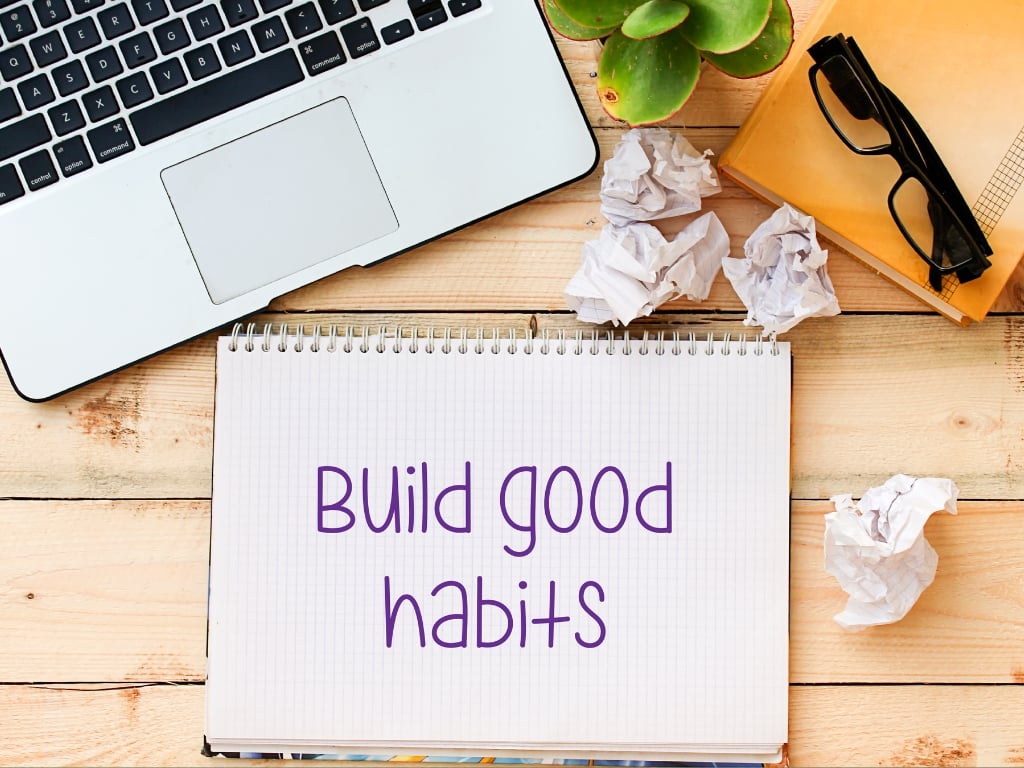9 College Study Habits That Actually Work

A new school year means a fresh start—and there’s no better time to build habits that set you up for success. Whether you’ve struggled in the past to stay organized or you’re just looking for ways to level up your routine, these practical tips can make a big difference. High school gets more academically demanding every year, so let’s make sure your study skills are keeping up.
1. Create a Study Space That Works
Where you study matters more than you might think. Find a spot that helps you focus—quiet, comfortable (but not too comfortable), and free from distractions. The kitchen table might be too busy, and your bed too cozy. A desk in a calm corner is often best.
Pro tip: Turn off your phone, or better yet, leave it in another room. If you like background noise, instrumental music or ambient sounds work well—but steer clear of lyrics that can break your concentration.
2. Know Your Learning Preference
Are you a visual, auditory, reading/writing, or kinesthetic learner? Knowing how you learn best can help you customize your study strategies—for example, drawing diagrams, recording voice notes, or walking while reviewing flashcards.
3. Use a Planner to Keep on Track
Go old-fashioned and use an acutal planner. Grab some highlighters and block out all your non-negotiables: school hours, sports, clubs, part-time jobs, and anything else that takes time. Use different colors for each category.
Now, add in a minimum of two hours of study time each day. If you finish homework early, use that time to:
-
Review your note cards
-
Organize your binder
-
Go over topics you're still unsure about
Also, don’t forget to schedule a quick planning session over the weekend. Look ahead at your assignments, gather materials (poster board for Tuesday’s Spanish project?), and prep for any upcoming quizzes or tests.
4. Read Ahead—Even Just a Little
Here’s a study hack most students skip: preview what’s coming up in class. If your teacher shares a syllabus or weekly plan, use it! Skim the textbook or notes before the lesson. This simple step helps you absorb new information faster, because your brain has already seen it before.
5. Make Daily Note Cards
Every day after finishing homework, make a quick note card for each class with the key points from that day’s lesson. Writing it out helps reinforce what you learned, and it also gives you a chance to spot anything you didn’t fully understand. Don’t wait—ask your teacher for help as soon as you need it.
Keep your cards organized with a ring clip (one set per class works great) and review them regularly. Come test time, you’ll already have everything you need—no last-minute cramming required.
6. Try to Pomodoro Technique
Break your study time into short, focused intervals (like 25 minutes of work followed by a 5-minute break). This helps keep your brain fresh and makes long tasks feel more manageable.
7. Take Brain-Friendly Breaks
Take breaks that actually recharge the brain - stretching, short walks, hydration, or a snack—not just scrolling TikTok. Taking regular break help keep you focused and productive during study sessions. This ties into mental wellness, which is a growing concern for students.
8. Practice Mindfulness and Stress Management
As academic pressure builds, the stress is real - but so is burnout. Try journaling, mindful breathing, or simply unplugging for a few minutes each day. Staying mentally balanced helps academic focus.
9. Ask for Help!
If something’s unclear, don’t wait. Attend office hours with professors - they are literally sitting in their office just waiting for students to show up!. This is also a great way to make connections with faculty members. Form study groups or consider getting a tutor. Try the tutoring lab or the writing center to get help. Smart students ask for help before falling behind!
💡 Final Thoughts
A strong start sets the tone for the whole year. Even small habits—like reading ahead or reviewing a few note cards—can pay off big over time. Pick one or two of these tips to try this week and build from there. You’ve got this!
Schedule a meeting with me to see how I can help you find your path to college with less stress and more success!

Join the monthly newsletter and stay informed!
Thank you for subscribing!
Have a great day!